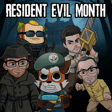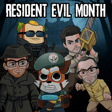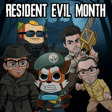Become a Creator today!Start creating today - Share your story with the world!
Start for free
00:00:00
00:00:01

Top 5 DMing Tips in Dungeons & Dragons ft Craigy C || Chatsu Shorts
In this episode, Craigy C of the Beer and Chill Podcast discusses both his experience of being a DM in the world of Dungeons and Dragons as he provides his top five tips to being a good DM.
For more episodes of Beer and Chill click here!
For more Satsunami content, please click here!
For more Chatsunami content, please click here!
--- Send in a voice message: https://anchor.fm/chatsunami/message
Transcript
Introduction to Craigie C from Beer and Chill Podcast
00:00:05
Speaker
Welcome to Chatsunami. Welcome to another episode of Chatsu Shorts. In this episode, my friend Craigie C from the Beer and Shell Podcast will be giving his 5 top tips to upcoming DMs. Without any further ado, hope you enjoy.
Players and Story Understanding: A Lesson Learned
00:00:35
Speaker
Hi there, it's me, it's me, it's Craigie C from The Be It And Chill Podcast. Today I'm going to be talking about things that I learned playing Dungeons & Dragons as the Dungeon Master. So I've been lucky enough to complete an entire campaign from start to finish with my team, took across four years. Probably the biggest takeaway I took from that four years is no matter what you write, no matter how amazing your writing is, you will never explain your entire story correctly to your players.
00:00:58
Speaker
I see a lot of memes and it's like an iceberg, you know, there's stuff that's over the top of the water and that's the things that your players actually see under the waters or the law that you write. And I think one thing to get across to other DMs and other people is that's okay. It's actually really good because if you're that good at writing I'll go write a book.
00:01:14
Speaker
The whole point of Dungeons and Dragons is it's collaborative, and part of that is that you won't ever be able to explain that, and your players are going to fill in the gaps.
Adapting to Players’ Interpretations
00:01:21
Speaker
That kind of brings me onto my second big lesson I learned, which is your players are going to fill in the gaps, and your players are going to fill in the gaps wrong. So what I mean by that is, you might go to a new town, you've got this really great idea of an NPC where they're the mayor of the town, for example, and
00:01:34
Speaker
They're hyper competent and when you go to deliver, the mayor's up in the speech, you flub it, you say something stupid and then the players think this person's a dumbbell and you've kind of got two choices at this point. Your choice one is to try circumvent this and bring it back round and make it out like your mayor is actually smart and you know
00:01:51
Speaker
Or you just roll with what the players have filled in the gaps with and they've decided this guy's an idiot. So maybe instead of being the competent mayor everyone in the town thinks he's a fool but he's muddlin' by. Just to give a real world example I had a NPC that I really wanted to be like the guiding character throughout my game and in one of the very first sessions we played my character took an instant this late so I think I gave him a silly accent and they just hated him.
00:02:14
Speaker
and after a while he became a recurring villain instead of being this character I dreamt about to be and I think that's really fun and that's part of what makes Dungeons and Dragons so collaborative and so fun is that your players can influence the world like that which kind of brings me on to my next thing that I've learned and it's
00:02:29
Speaker
Really that even though you're writing this world and you can encourage your players to act in a certain way, you can never predict how they're going to act.
Letting Players’ Humor Evolve Naturally
00:02:35
Speaker
And especially if you have players that want to be funny, you can never write comedy for them. That was something that I learned quite early on. So I really wanted my players to have a good laugh. We always tried to make the world a lot more like Indiana Jones, or The Avengers as it is now, or whatever it is supposed to be in need of super realistic Dungeons and Dragons.
00:02:52
Speaker
I think that's the same with a lot of groups and I think as a dungeon master you have to take a step back and let your players be absurd in this world that can be sometimes quite serious. One thing that I've certainly noticed is when you as a dungeon master you are the authority in the game if you start involving yourself too much in a joke it can actually kill the joke off.
00:03:10
Speaker
To give another example from one of my games, Satsum himself started with another player. Started doing a thing where they were reviewing interior decorating of the dungeons that we were going into. And so as a dungeon master, I had two choices. One of them was I could go in and I could start making fun of how he notices all the interior decorating start making tensionally gaudy.
00:03:29
Speaker
uh, tear your decorating or start making it there. Going to a fashion easter's house. But that would have killed the joke because the joke is kind of the subversion of the expectations, so to speak. So what you do as a dungeon master is you can mention furniture offhand. You can mention this offhand and this joke can live on but it never grows arms and legs and as a DM you don't kill it
Improvisation and Memorable Moments
00:03:48
Speaker
off. Um, number four thing that I learned was don't worry if things don't go to your plan. I've mentioned different characters that can happen. I've mentioned running gags that can come out of nowhere.
00:03:57
Speaker
nobody's paying attention more than you are and it sounds a wee bit mean and it can be a little upsetting when you realise that but no matter this kind of ties into the first part as well that nobody knows your story and you'll never be able to explain it as well as you think you can ultimately nobody knows when something goes wrong if you have a bunch of characters you want to introduce or even just a fight i had a boss fight planned where invent made this big um big route map and it made like a 3d map and i realized that the boss is gonna flip the room and these allies really kill attacks and i rolled nothing but two's the entire boss fight
00:04:26
Speaker
I don't think the boss got a single attack in, and I just improvised round that. I had it, that was the MOOC boss before the next one came out and I had like a wizard fight them instead, and they actually talk about the end of that session far more than that boss fight. The end of that session I had to confront sort of the big bad and he escaped. That's what they talk about, that's the things they remember as moments. And
00:04:47
Speaker
that really ties into my final thing I want to talk about. Your players are never going to remember your story as well as you are, they're going to focus on the wrong things as I mentioned, you know they're going to want to make fun of things, they're going to have comedy and as I mentioned things are going to go wrong.
Fostering Interaction and Downtime Memories
00:04:59
Speaker
Where does that leave you? It leaves you with the fact that the players aren't going to remember too much
00:05:03
Speaker
What they're going to remember is specific moments about their character. I think what's important is that there's masses to give them the space to do that and give them moments to shine. Two examples. So we're talking about giving them space. One thing I regret doing in my game is that it never gives them enough time just to interact with each other and just interact with the world. Your campfires.
00:05:21
Speaker
or cities and just let them walk around. I always wanted to give them story, I wanted to give them gameplay but sometimes I kind of miss that and some of the stuff they talk about to this day was those downtime moments where the characters got to interact with off characters NPCs or they got to interact with each other and some of the patter, the banter that we had from that lives on to this day. One thing you hear a lot about is dungeon masses going oh I need to design combat around this guy because I've got a guy now that's anti-air, really good anti-air or I need to design combat around my wizard because he's really
Creating Triumphs for Players
00:05:48
Speaker
good at this.
00:05:48
Speaker
Remember to let your players win in wind and style. I think that's maybe my biggest takeaway and that's one of the things my players remember to this day is how well they won. To give you another example of that, one of my friends joined us late and he played a warlock that was able to engulf rooms in darkness and he told me this up front and one of the very first sessions I did I was planning to have them fight these cultists and I was going to use the cultists that had night vision and I can't remember if that works against magical darkness
00:06:14
Speaker
sort of, but either way I decided to change it to normal humans because I knew he was gonna do this and I knew it was gonna be so cool and I knew that was gonna make his character become a little bit of a legend in the team and people are gonna really sit back and go, whoa, this guy's amazing! And sometimes it's really important to do that, your characters level up, your players level up and they learn new spells and the players are going, oh wow, it's amazing that I can use Polymorph now or I can use Divine Smite or I can use whatever and it's like let your players do that because that's the things they really, really want.
00:06:38
Speaker
you know, don't give it to them all the time, don't give them everything for free, but let them have those moments, those character moments, because they're the things that they remember.
Integrating Player Backstories for Engagement
00:06:44
Speaker
One thing I tried to do, I used to name all the sessions that we'd play on Facebook, we'd arrange it over events, and I had for each character I had such and such as Big Day, so Santa's character was called Blimbro, so he had one quite early on called Blimbro's Big Day, and I tried to arrange a little one just to give them a bit of backstory, they knew what was coming, and
00:07:02
Speaker
also give them a little bit of an individual reward as well. There's one thing I think about finding loot in a dungeon which is cool and it's a bit like giving a player a specific piece of loot from their backstory I think was what really engaged a lot of players and what made them want to tell me more about their characters. So after Blimbro he was the first one that I gave that to because his backstory was so good. Other people started submitting more information, started telling me more, started giving me more and you know that really
00:07:26
Speaker
brought the players out of the shell a bit for those characters. So yeah, that was the five things that I learned. The fifth one kind of ties everything together. So yeah, just
Final Advice on Character Development Focus
00:07:33
Speaker
to reiterate that. Your players are going to remember their character more than anything else, and they should be rewarded for that because it's what they're here for. But yeah, I hope you enjoyed that. That was just something I picked up, something I gave out. If you'd like to hear my voice, go check us out at Beauty and Chill. And if you want to play Dungeons and Dragons, hit me up because, you know, I'm always up for that. Cool, thank you, and take care. Bye-bye.
00:07:55
Speaker
Thank you for listening to this episode of Chatsoo Shorts. If you want to hear more of Craigie C's work, then you can hear him over on the Beer and Chill Podcast. That's anchor.fm slash Beer and Chill. As always, stay safe, stay awesome, and most importantly, stay hydrated.








